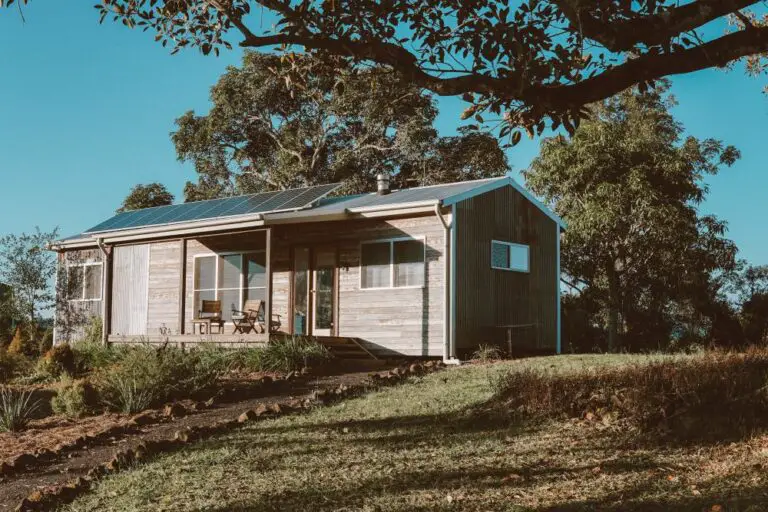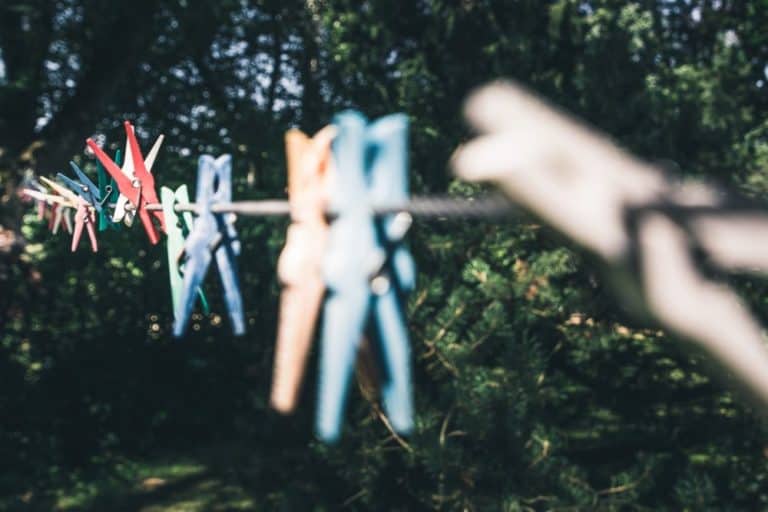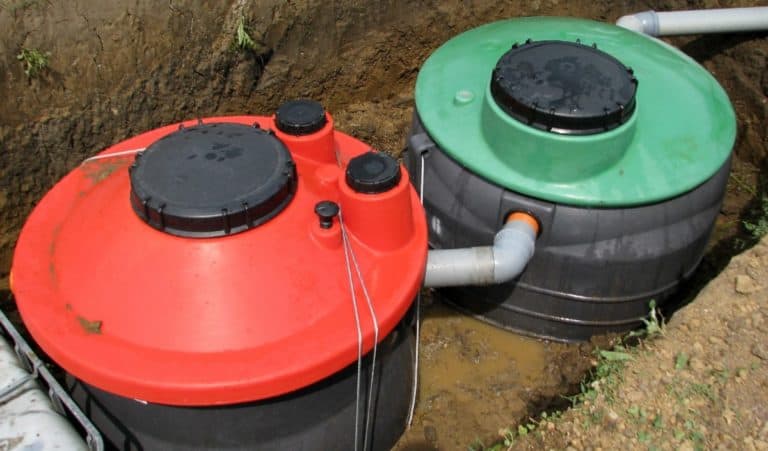Texas Off-Grid Laws: A Comprehensive Guide
Finding out whether it’s legal to take your home off-grid or to build an off-grid property is a complicated business. With cities and counties enforcing different areas of federal legislation and adopting different versions of building codes, it can be hard to know where you stand.
Off-grid living is legal in the majority of Texas. Rainwater harvesting and solar panels are encouraged, and the state allows sewage disposal systems such as compost toilets. However, some cities’ building codes require homes to be connected to utilities, including electricity, water, and sewerage.
Texas has adopted several laws and regulations that support an off-grid lifestyle, but it’s still vital that you know the full details of those that affect you and your property.
Table of Contents
Can you disconnect from electric utilities in Texas?
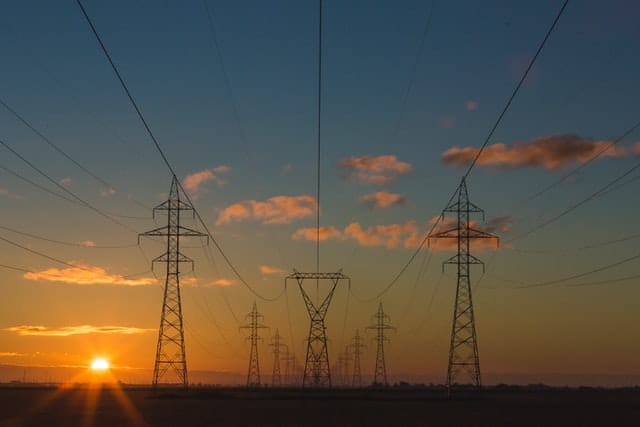
Disconnecting from the electricity grid and installing an alternative power supply is legal in Texas’s most rural areas. Solar and wind power are encouraged, but some building codes require homes to remain tied to the grid.
The Texas House Bill 362 was introduced to prevent homeowners associations (HOA) and property owners associations (POA) from restricting solar panel installation. If you live in an area with either an HOA or a POA, you should follow standard procedures and submit any home alteration plans for approval. However, while this protects you if you want to install solar, it doesn’t give you any rights to disconnect completely from the grid.
To determine if you can leave the electricity grid in your area, you should refer to the building codes adopted by your county or city authority. Most cities adopt existing sets of building codes. The most common set of building codes found in many US cities is the International Property Maintenance Code. Some keep the codes as they are, and others adopt them in part and make their own amendments. As a result, you may find different rules from one city to the next.
However, the building codes in most large Texas cities require you to submit plans before beginning any alterations. In many cases, while city authorities approve of solar panels, they don’t make allowances for disconnecting entirely from the grid.
For example, in Houston, the code states: “In each habitable space, connect the space to an approved electrical service.” However, in some, such as San Antonio, there are specific mentions: “A stand-alone system that is not connected to the grid that is over or at 50-volts over 1,200 watts requires electrical permits.”
You may also like to read: Is it legal to disconnect your home from the electricity grid?
Are there any restrictions on waste systems?
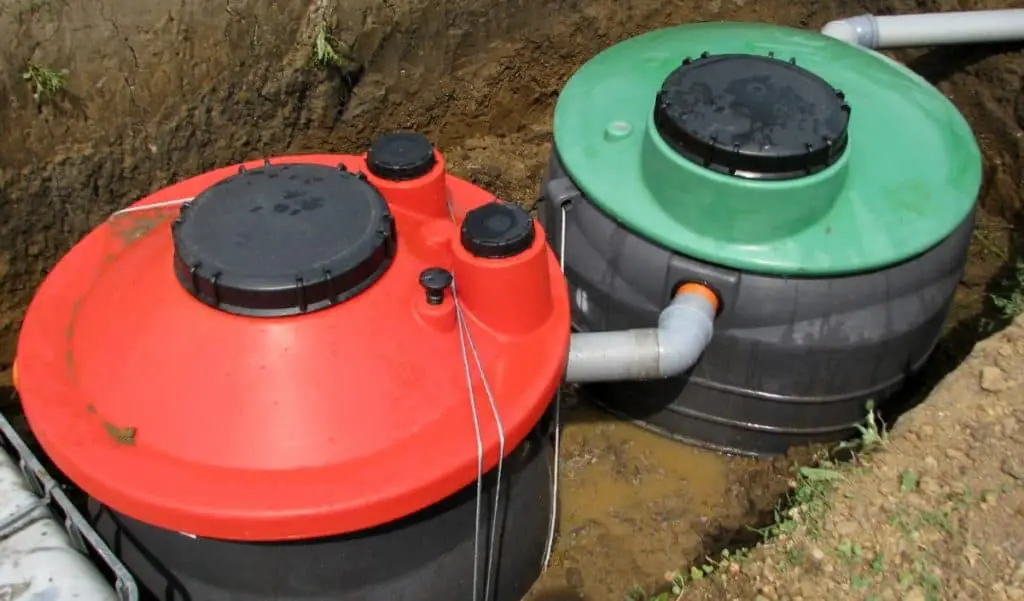
The power to regulate sewerage facilities is in the local authorities’ hands, so the specific approach depends on where you live. However, across Texas, septic systems, composting toilets, and outhouses are often permitted in certain situations. The critical part is that any sewage arrangements are subject to approval from the relevant city or county authorities.
The IPMC 2015, which is the most commonly adopted set of model building codes, states that: “Plumbing fixtures shall be properly connected to either a public sewer system or to an approved private sewage disposal system.” This gives the possibility that in some areas, alternative systems will be considered.
In Houston, they specifically approve of septic systems: “In each non-vacant dwelling unit and congregate living facility, provide and maintain in good operating condition a toilet located in a room affording privacy to the user and connected to a water source and to a public sanitary sewer system, where service is available, or to an approved septic system where public sanitary sewer service is not available.”
Recently, in Austin, there have been cases of certain types of composting toilet being approved. However, they’re not permitted if the property is within 100 feet of an existing sewer line. This is a common theme throughout urban areas in Texas; off-grid waste systems are only available if there are no other options. In rural areas, you’re likely to be free of these restrictions because there are unlikely to be existing sewerage systems.
Check out: The complete guide to off-grid wastewater management.
Is it legal to collect rainwater?

Collecting rainwater is actively encouraged throughout Texas. House Bill 3391 outlines provisions to support property owners, builders, or developers to include rainwater collection systems in new homes. The rainwater collected must be filtered and meet safety standards, but it can be the only supply of water. Some property tax exemptions are on offer for such properties, and rainwater harvesting supplies are exempt from state sales tax when you fill in this form.
Because every property is subject to laws, restrictions, and guidelines from numerous organizations, Texas property code 202.007 stops homeowner’s associations from having the power to prevent rainwater collection systems. However, if you use rain as your primary water source, it must be stored, filtered, and piped into your home to provide hot and cold running water.
Houston building codes specifically require “pipes to supply potable water at adequate pressure […] a device to supply hot water at a minimum temperature of 120 degrees Fahrenheit […] sources of cold and hot water for each bathtub, shower, and lavatory […] In each kitchen, provide and maintain connections to sources of cold and hot water for a sink.”
Related reading: How to get an off-grid water supply without a well.
Are there any laws that prevent you from digging a well on your property?
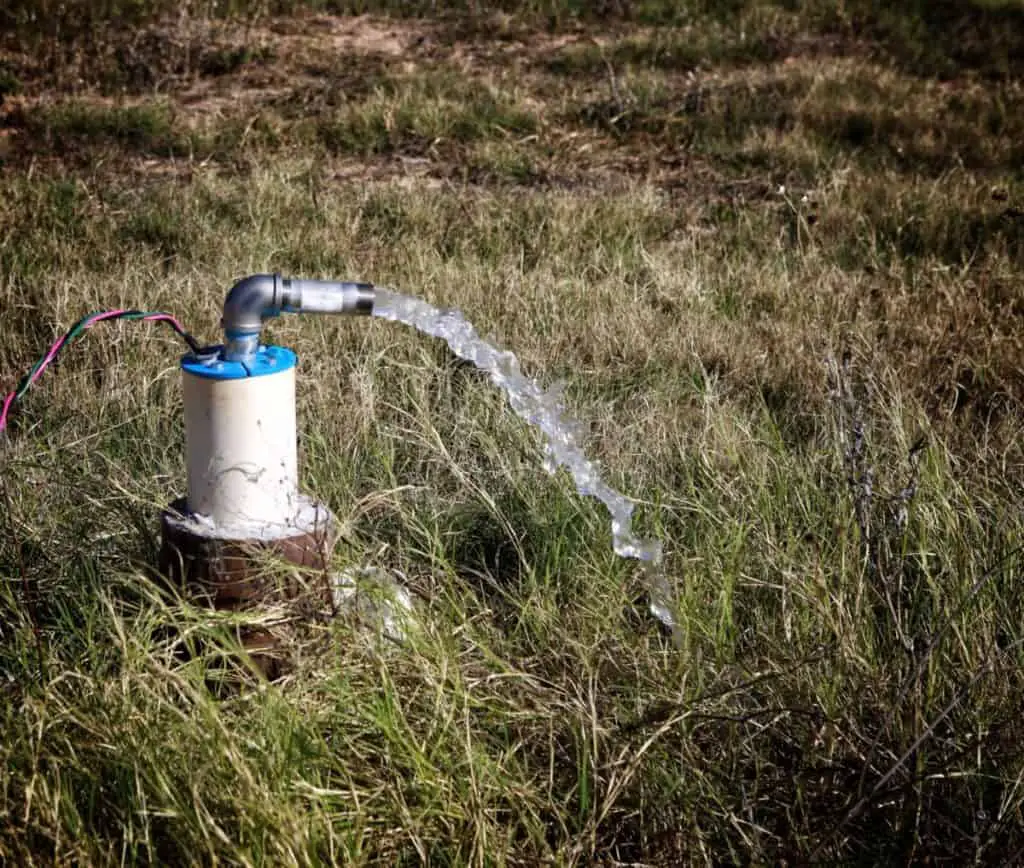
Drawing water from a well on your property in Texas falls under ‘the law of capture.’ This implies that you own any water found under your property. Also, you have the right to pump, use, and/or sell as much as you like, as long as you don’t breach any of the exceptions.
Licensed drillers must dig wells, and some city and county authorities require site inspections to be conducted first before they grant permits. All licensed drillers submit drill reports giving details of the dig. Past reports are available to the public and can indicate if other wells are in your area and how deep they needed to be.
Although you can extract all the water you need from under your property, the process of drilling the well is likely to require permits and inspections. It’s also worth bearing in mind that drilling a well depends on being able to get the equipment to the drill site. So if you only have a small yard with no rear access, it’s unlikely to be approved.
Conclusion
While most requirements of an off-grid home are legal in Texas, they often require detailed planning, permits, and occasionally inspections. Additionally, the situation is always far more complicated within city limits. Homeowners associations, city authorities and building codes may set limits on what you can and can’t do.
Despite these legal hoops to jump through, Texas’s outlook on off-grid technology is progressive and continues to get better. Ultimately, if you want to go off-grid in Texas, do it outside of city limits where possible.
Related reading: The best places to live off-grid, ranked.
Check out my recommendations for equipment that will help you take your home off-grid.
My Off-Grid Product Recommendations
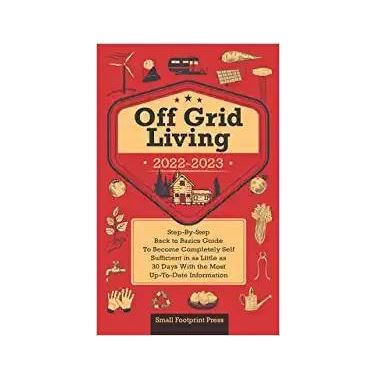
Useful Book: Off Grid Living 2022-2021 – This incredible step by step guide is a great read and gives you useful information about reaching self-sufficiency in just 30 days. Get the paperback on Amazon or read it free with a Kindle Unlimited subscription or listen to the audio version with Audible Plus membership.
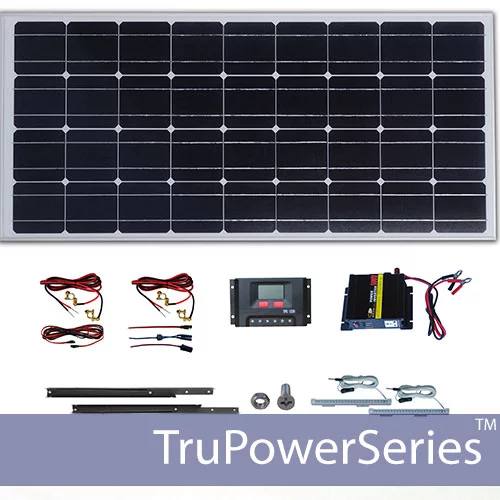
Small Solar Panel Systems: Silicon Solar – This is an excellent company that offers lots of products to get you started on your solar journey. Visit Silicon Solar.
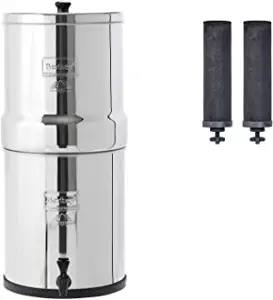
Family Water Filter: Big Berkey – For a fast, affordable water filter with no plumbing required, you can’t beat a Big Berkey gravity-fed filter like this one from Amazon.
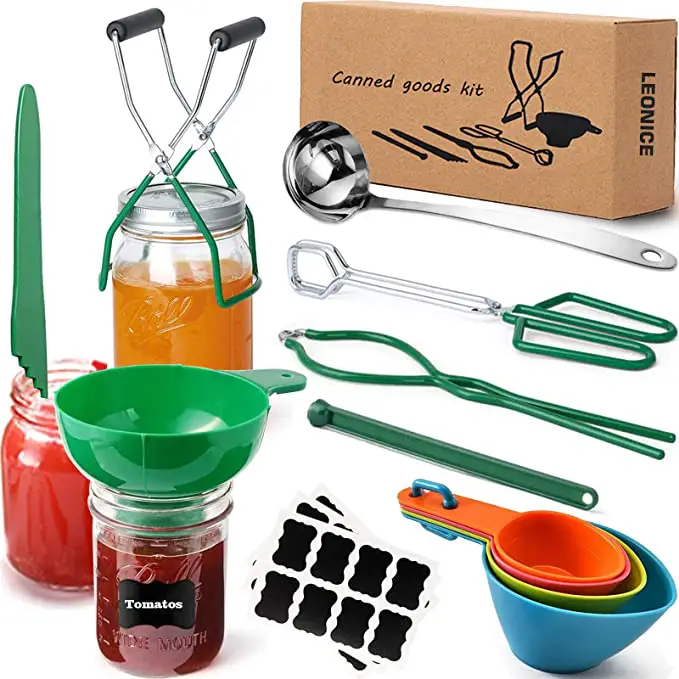
Canning Equipment – This canning starter kit, 22-quart Barton pressure canner and twelve-pack of Ball 16oz mason jars will help you preserve food as you work towards self-sufficiency.
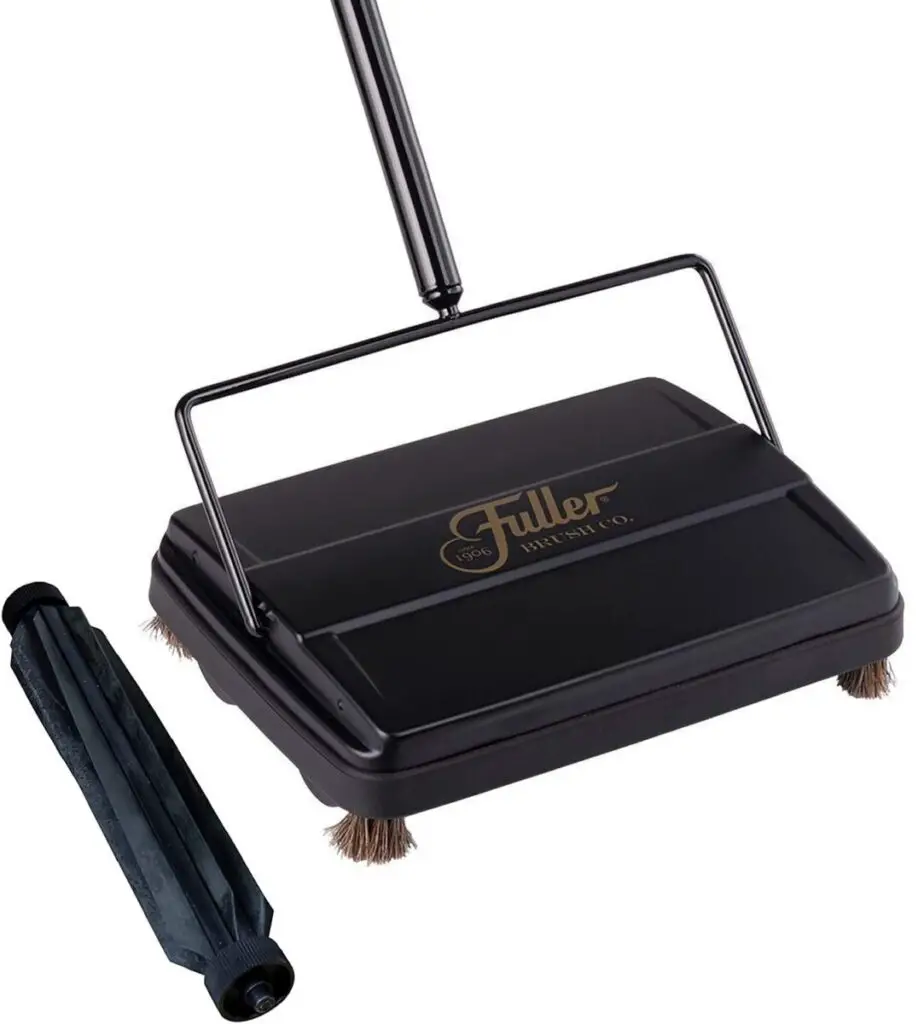
Cleaning: Fuller Carpet Sweeper –. This carpet sweeper is an ideal way to keep your home clean without using up your energy stores on vacuuming.

Handy Knife: Gerber Serrated Paraframe – This handy all-purpose knife is lightweight and ideal for all those little jobs around your home and garden.




